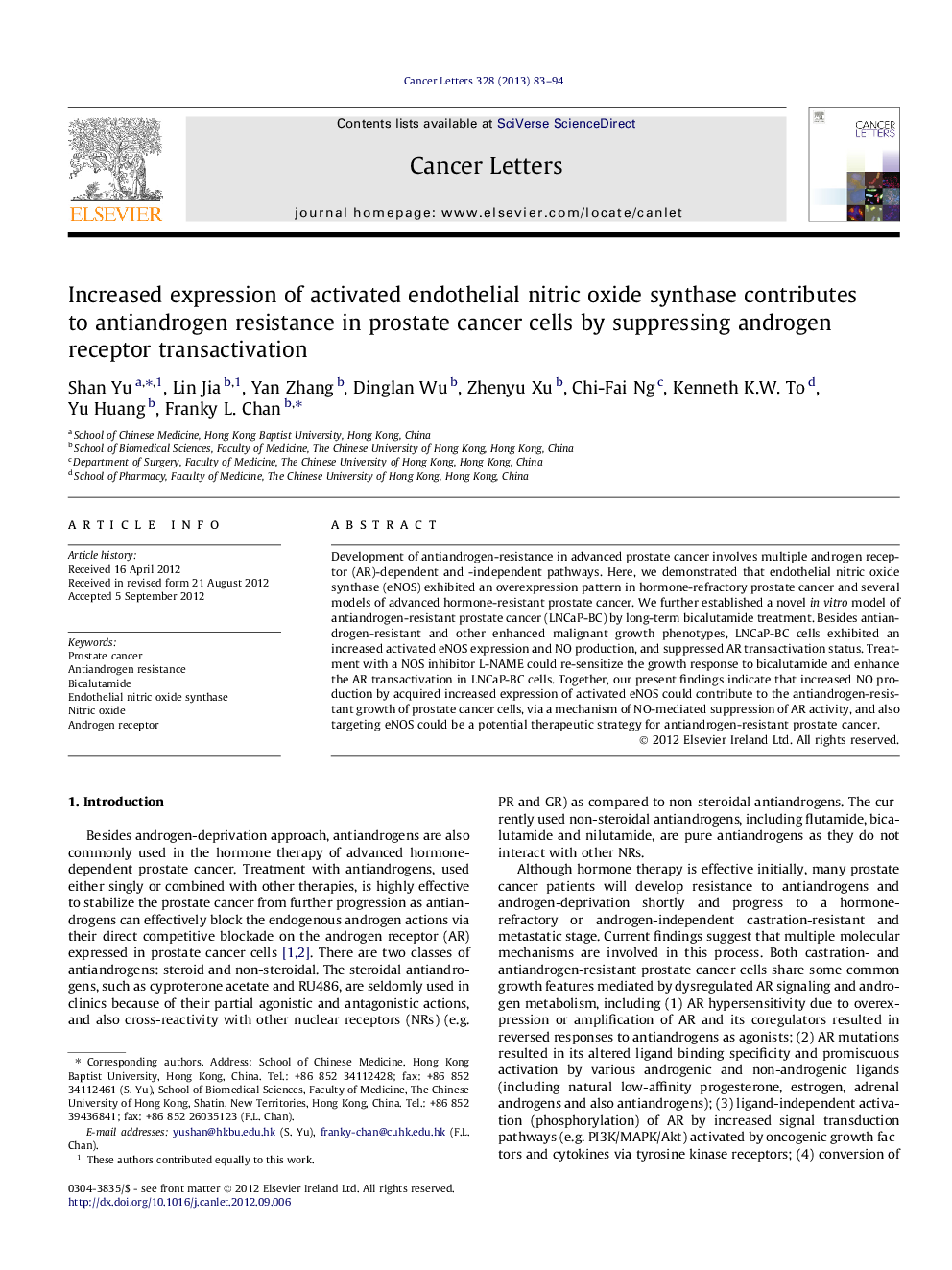| Article ID | Journal | Published Year | Pages | File Type |
|---|---|---|---|---|
| 2116324 | Cancer Letters | 2013 | 12 Pages |
Development of antiandrogen-resistance in advanced prostate cancer involves multiple androgen receptor (AR)-dependent and -independent pathways. Here, we demonstrated that endothelial nitric oxide synthase (eNOS) exhibited an overexpression pattern in hormone-refractory prostate cancer and several models of advanced hormone-resistant prostate cancer. We further established a novel in vitro model of antiandrogen-resistant prostate cancer (LNCaP-BC) by long-term bicalutamide treatment. Besides antiandrogen-resistant and other enhanced malignant growth phenotypes, LNCaP-BC cells exhibited an increased activated eNOS expression and NO production, and suppressed AR transactivation status. Treatment with a NOS inhibitor L-NAME could re-sensitize the growth response to bicalutamide and enhance the AR transactivation in LNCaP-BC cells. Together, our present findings indicate that increased NO production by acquired increased expression of activated eNOS could contribute to the antiandrogen-resistant growth of prostate cancer cells, via a mechanism of NO-mediated suppression of AR activity, and also targeting eNOS could be a potential therapeutic strategy for antiandrogen-resistant prostate cancer.
► We developed an in vitro model LNCaP-BC of antiandrogen-resistant prostate cancer cells by long-term bicalutamide treatment. ► Increased expression of activated eNOS and NO production is acquired in bicalutamide-resistant LNCaP-BC cells. ► Clinical hormone-refractory prostate cancer also shows increased eNOS expression pattern. ► Increased NO production suppresses AR activity and contributes to antiandrogen-resistant and androgen-insensitive growth. ► Antiandrogen-resistance and suppressed AR transactivation in LNCaP-BC cells can be attenuated by inhibition of NOS activity.
